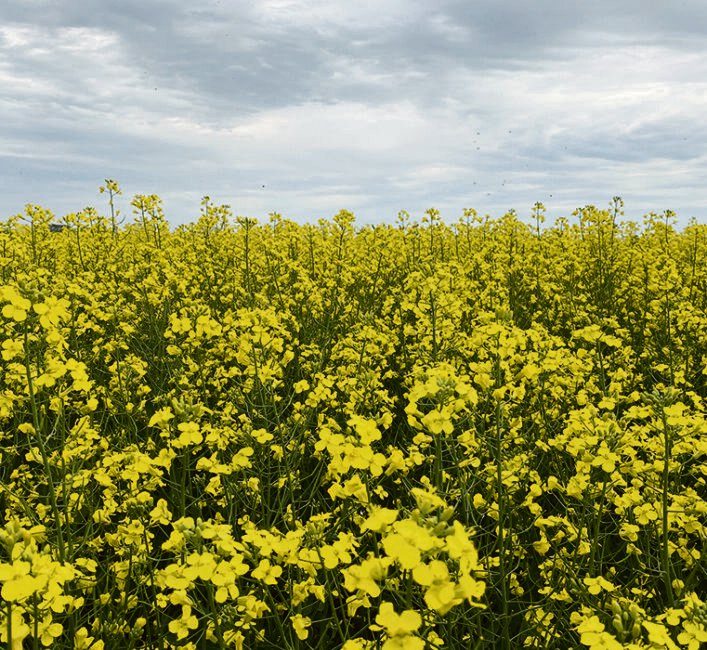It’s time meal becomes the Cinderella story for canola

With three new canola crushing plants and a major expansion to an existing facility all announced in the last few weeks, questions arise about the adequacy of seed supply to crush and the markets the plants will serve.
The soaring new demand for renewable diesel partly addresses the market opportunity on the oil side of canola’s product line, but I know I am not the only one wondering who will buy all the meal.
It will likely require canola meal researchers and marketers to redouble their efforts, but there are several developments that might cause us to update our assessment of the crop to conclude the real Cinderella aspect is the meal and its protein.
California’s dairy herds and China’s fish farms have long taken our meal exports, but the future might be all about human food plant protein, aquaculture and even bioplastic.
Let’s take stock of the recent canola crush announcements.
Richardson led the parade, announcing a doubling of its Yorkton, Sask., plant to 2.2 million tonnes.
Next, Cargill announced a new one million tonne crushing plant for the Regina area and modernization and expansion of existing plants at Clavet, Sask., and Lethbridge, Alta.
Viterra announced a 2.5 million tonne canola plant, also in Regina,
On May 25, Ceres Global Ag announced plans for a 1.1 million tonne canola crush plant at Northgate, Sask.
If all of them are built, that is a new market for 5.7 million tonnes of canola by 2024, marking an increase of about 50 percent from the current capacity.
They would produce an additional 2.5 million tonnes of oil and 3.2 million tonnes of meal.
The Canadian Oilseed Processors Association estimates about 5.8 million tonnes of meal were produced in 2020 and of that five million was exported at a value of $1.9 billion.
The United States took 69 percent of the exports and China 30 percent.
There are likely opportunities to expand these traditional export feed markets, including getting canola meal into more swine diets, but it would be a lost opportunity if Canada did not develop new domestic demand and processing streams.
An exciting development is led by Merit Functional Foods, which opened its first plant in Winnipeg in February. Initially, it will buy 25,000 tonnes of canola and peas annually to process and extract protein to be used in food, beverage and nutraceutical brands.
Merit is a joint venture of Vancouver-headquartered Burcon NutraScience, which developed the extraction and purification technologies that Merit uses.
Plant construction began in 2019 and in 2020 it received loans of $55 million from Export Development Canada, $25 million from Farm Credit Canada and $10 million from the Agri Innovate Program.
Global food giant Bunge invested $30 million to become a 25 percent shareholder in Merit. Burcon and Merit also have a collaborative partnership with Nestle to tailor the plant based proteins for use in Nestle’s foods.
On May 24, Burcon began trading on the Nasdaq stock exchange, giving it improved visibility to the American investor community. It was already listed on the Toronto Stock Exchange.
Pulse Industry Canada announced on May 28 its second investment with Merit.
It is providing half the money for a $7.9 million project by Merit, TWC Nutrition, Daiya Foods and Grand River Foods, all Canadian companies, to use Merit’s pea, canola and blended pea-canola protein ingredients in new plant-based products.
Merit planned its facility to be able to expand to use more than 100,000 tonnes of canola and peas a year.
I’ve mentioned that meal is used in China’s fish farms. Many of the world’s wild fish stocks are suffering from severe over harvesting.
Farmed fish are increasingly meeting the global population’s demand for seafood. Aquaculture done improperly can also have negative environmental impacts, but if done right can take the pressure off our oceans.
Hoping to capitalize on that growing market, Calgary-based Botaneco Inc. is working with partners Corteva Agrisciences and Rowland Farms on a way to process canola meal to extract protein that fish find more digestible, opening up a huge and growing market with the potential to do the processing in Canada.
Corteva, Bunge and Botaneco are also working on a $27 million project, half funded by Protein Industries Canada to breed new canola varieties that have meal with improved protein quality and less fibre.
Further down the road, the protein in canola meal might be used to make bioplastic, a desirable product that would have the desirable attributes of petrochemical based plastic, but which would break down naturally after a few months, eliminating the current pollution problem.
With support from the federal and Saskatchewan governments, University of Saskatchewan researchers are working on biodegradable bioplastic.
Source: producer.com

